2025 California Employment Law Updates: Important Bills to Watch
By Admin April 29, 2025 Category: Employment
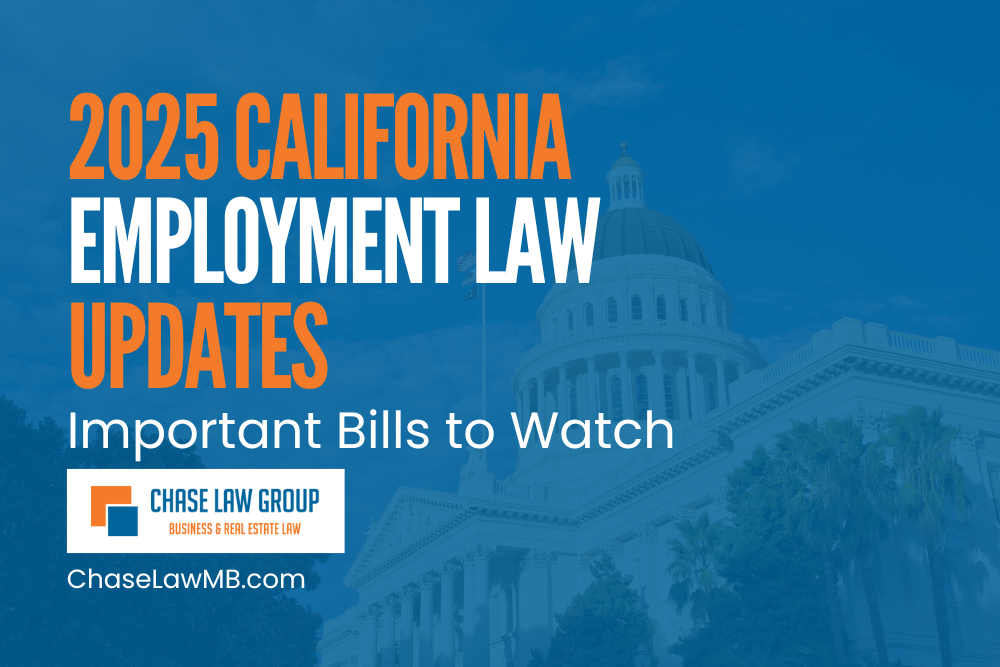
April was a busy month in Sacramento following legislators’ Spring recess. As the 2025 legislative session progresses, California lawmakers introduced several bills that could have a significant impact on employment law in the state. While it's still early to determine which bills will move forward, these proposed changes could greatly influence how California employers operate. Key Proposed Employment Laws AB 1018: Regulating Automated Decision Systems Assembly Bill 1018 seeks to regulate the use of automated decision-making systems, including artificial intelligence (AI) and machine learning, that influence hiring, promotions, performance reviews, and pay. Under this bill, employees would have the right... READ MORE

As the November 5th election approaches, employers are reminded to comply with California’s voting-related laws, including leave and posting requirements. Voting Leave California employers must permit employees up to two hours of paid time off to vote if they don’t have enough time outside work hours to vote. Employers may require employees to give advance notice that they will need such time off for voting. Employers can limit the time off to be taken only at the beginning or end of the employee’s shift, whichever provides the greatest opportunity for voting and minimizes the time away from the regular work... READ MORE
Important Developments in California Employment Law Effective July 1, 2024
By Admin June 27, 2024 Category: Employment

Starting July 1, 2024, California employers must comply with the following changes in the law impacting their employees: 1. Most Employers Must Implement a Workplace Violence Prevention Plan As previously explained in last month’s newsletter, California requires employers, with few exceptions, to implement a Workplace Violence Prevention Plan (WVPP) by July 1, 2024. Details of the WVPP and how to comply with the new requirements can be reviewed by clicking here. Should your company need assistance in creating a WVPP, Chase Law Group can assist you. Contact us to get started. 2. Changes in the Division of Workers Compensation New... READ MORE
It’s Time for Summer Vacation: Be Prepared for Employee Requests for Time Off
By Admin May 29, 2024 Category: Employment

With summer fast approaching, it’s a good time to review and update company vacation and personal time off (PTO) policies to ensure compliance with California law. The following is a brief discussion of the laws that apply to vacation and PTO in California. Vacation versus PTO Policy As a preliminary matter, employers are not required to have a vacation or PTO policy. However, once they do have such a policy, employers must comply with applicable California requirements. There are two approaches when it comes to providing paid time off to employees. Some employers elect to provide a stand-alone vacation policy... READ MORE
Non-Disclosure Agreements: Protecting Your Company’s Trade Secrets and Confidential Information
By Admin April 29, 2024 Category: Employment
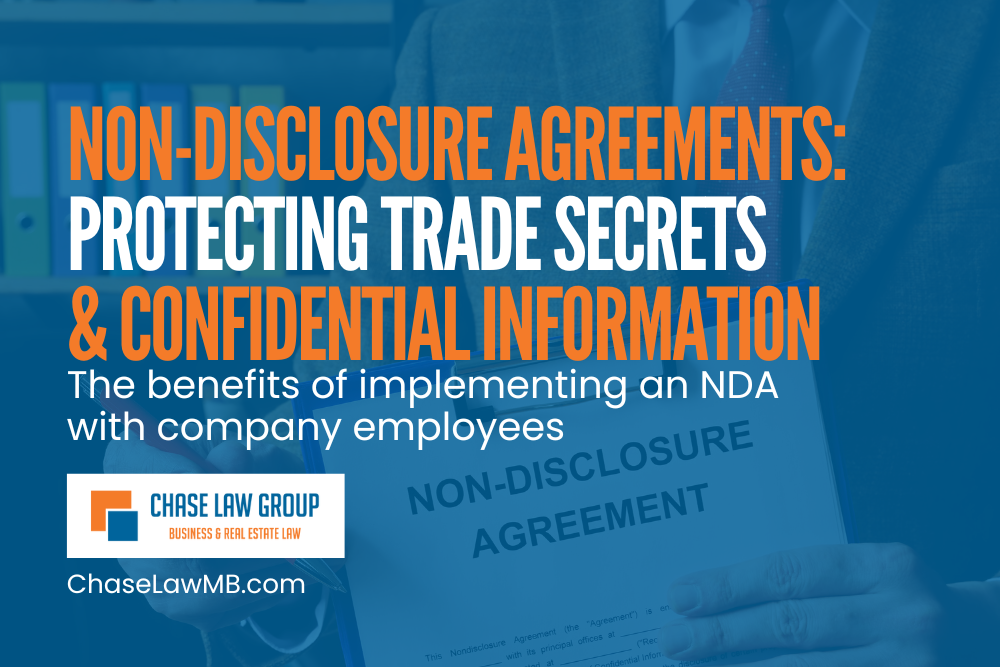
Virtually every company has developed product details, such as recipes or processes of manufacturing, or even customer purchasing information that it wants to protect from disclosure to competitors and the public. To protect this critical data, which would be considered trade secrets or confidential information, depending on the nature of the information, companies must take key steps to ensure it is not taken by employees whether intentionally or inadvertently. A Non-Disclosure Agreement (NDA) also referred to as a Confidential Information and Inventions Agreement, is an effective and necessary tool which both notifies employees of what the company considers its trade... READ MORE
How to Use Severance Agreements to Protect Your Organization
By Admin August 22, 2023 Category: Business Law
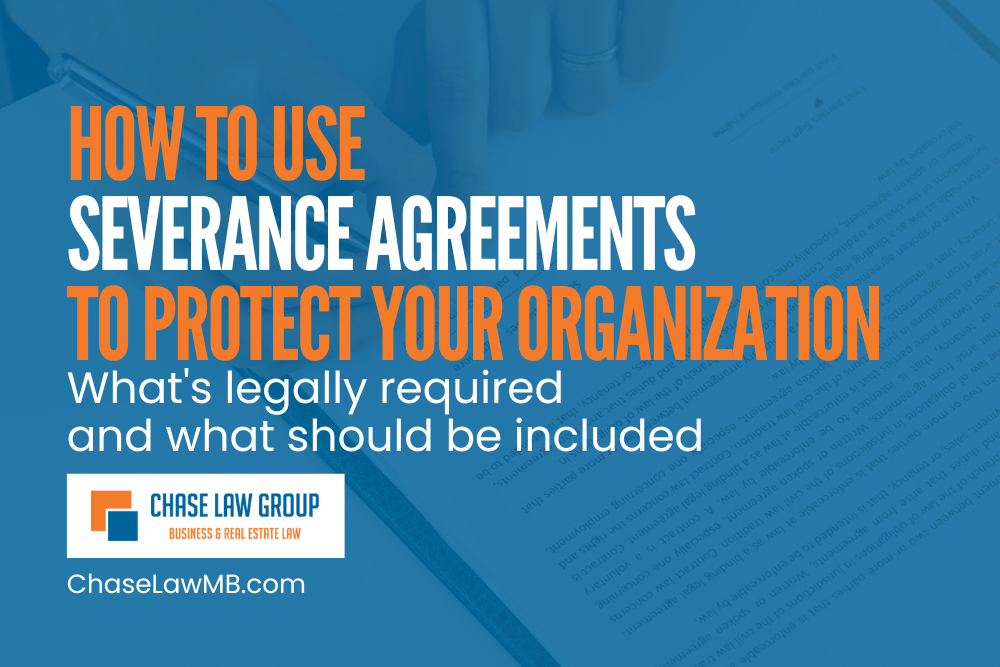
A severance agreement is a release to be signed by an employee whose employment is separated in exchange for payment of money (or other consideration). This can be an effective tool to protect a company from future lawsuits and other risks. Below we discuss legal requirements when using a severance agreement as well as specific provisions that should be included in the agreement to protect the organization. Legal Requirements When Presenting A Severance Agreement Whenever severance agreements are used there are certain legal requirements that must be followed. As a preliminary matter, in order to be enforceable, the employee must... READ MORE
Ninth Circuit Rules that Mandatory Arbitration Agreements with Employees are Permitted
By Admin February 21, 2023 Category: Business Law
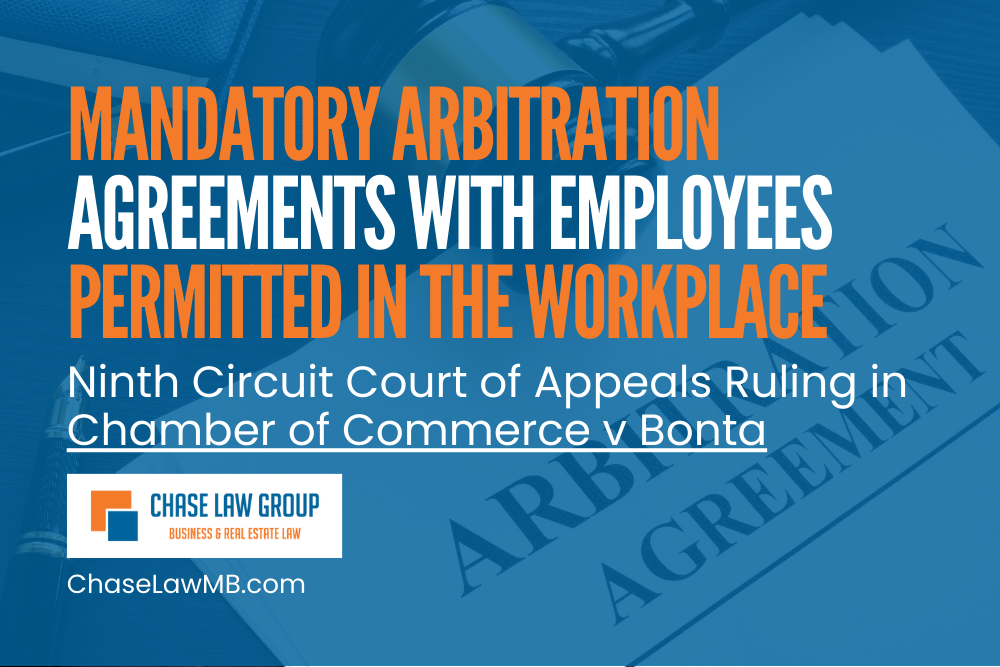
In a significant decision impacting employers’ ability to require new and current employees to agree to arbitrate their disputes, the Ninth Circuit Court of Appeals held by a 2-1 decision in Chamber of Commerce v. Bonta that AB51, enacted in California in 2019, which prohibited mandatory arbitration agreements, violated the Federal Arbitration Act. Based upon its ruling, which reversed an earlier decision issued by the Ninth Circuit, employers can now require employees to enter arbitration agreements as a condition of employment. California employers must now wait to see if the state of California will appeal to the full Ninth Circuit or the... READ MORE
California Extends Supplemental Paid Leave Through End of 2022 for Employers with 26 or More Employees
By Admin October 12, 2022 Category: Business Law
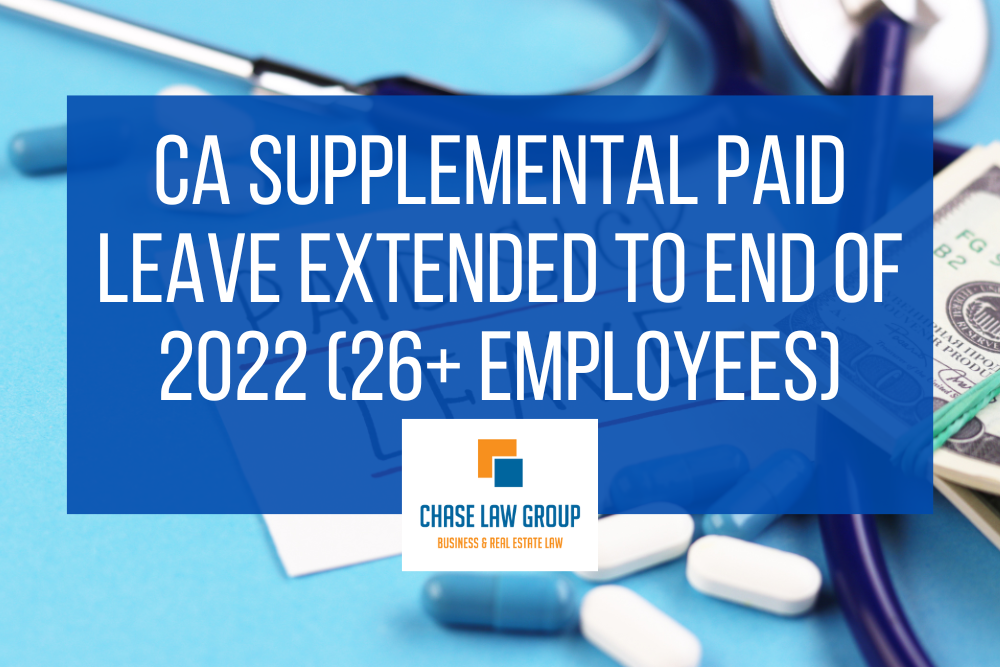
Governor Newsom has signed AB 152 which extends an employer’s (with 26 or more employees) obligation to provide Covid-19 Supplemental Paid Sick Leave (“SPSL”) through December 31, 2022. The prior law covering SPSL expired on September 30, 2022. Although the new law extends paid leave through the end of this year, it does not create any additional benefits or leave that otherwise existed under the prior SPSL law that expired September 30, 2022. Thus, if an employee already used their available banks of time under the prior SPSL law, no additional SPSL leave need be provided. For a complete breakdown... READ MORE
The ABCs of California’s Requirement for Reimbursing Employee’s Expenses
By Admin August 23, 2022 Category: Business Law
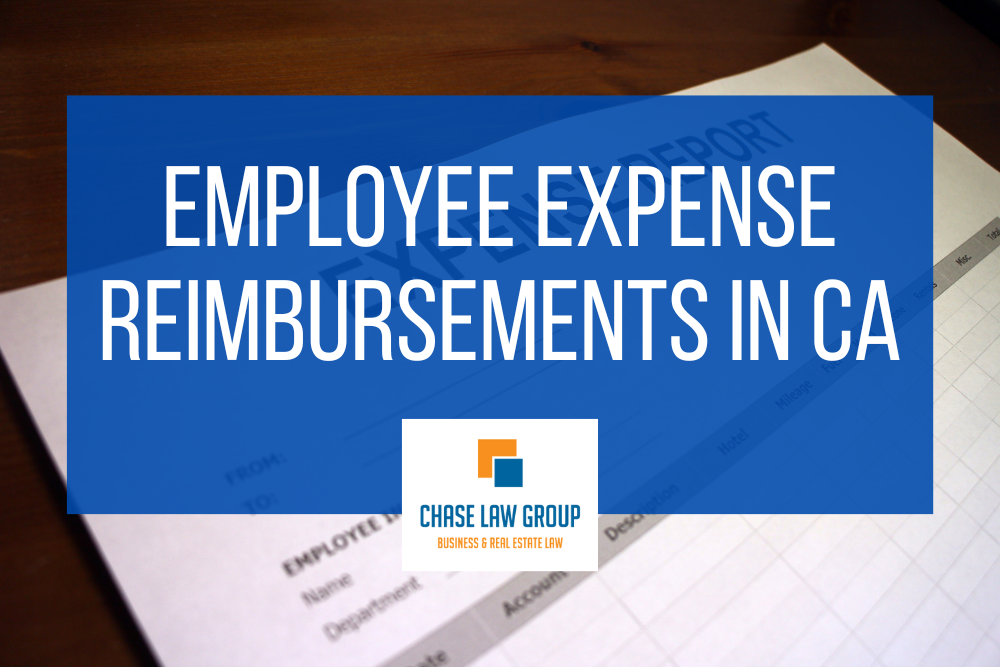
California employers are required to reimburse their employees for “all necessary business expenditures or losses incurred by the employee in direct consequence of the discharge of his or her duties.” (See California Labor Code section 2802.) Employers failing to properly reimburse their employees for work-related expenses risk exposure for the unreimbursed expense, attorneys fees, and possibly a Private Attorney General (PAGA) claim or class action if the practice of not reimbursing employees is widespread. Importantly, employers are obligated to proactively determine whether an employee is incurring expenses and cannot simply rely upon the argument that the employee never requested reimbursement.... READ MORE
California Employment Law: Changes and Upcoming Deadlines
By Admin June 20, 2022 Category: Business Law
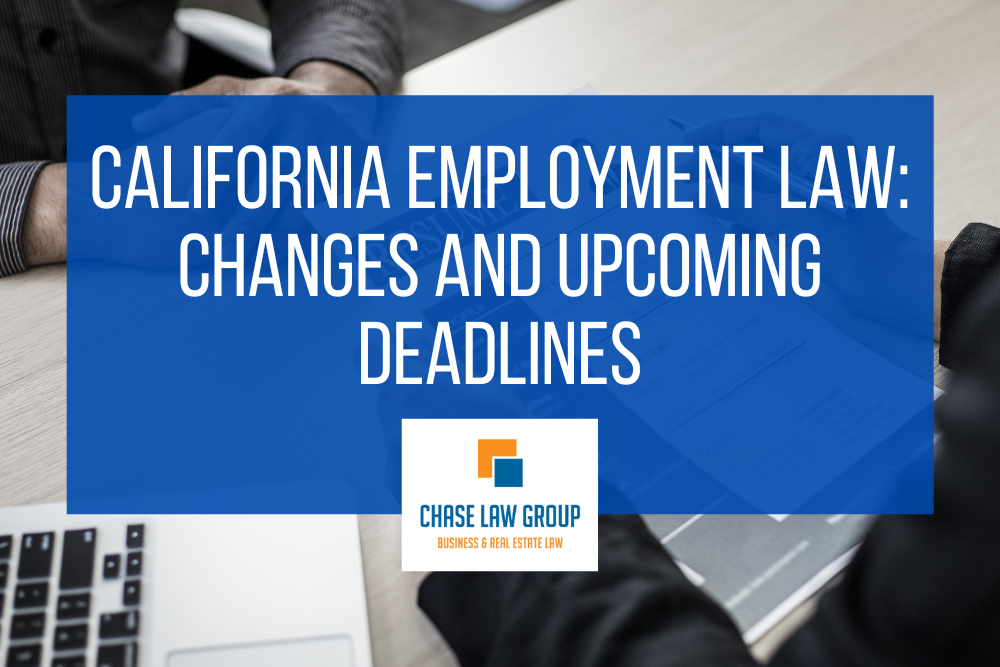
This month we remind you of upcoming changes and deadlines coming at the end of this month related to California employment law and discuss a recent California decision impacting meal and rest period violation and premium pay reporting requirements. Increase in City of Los Angeles and Unincorporated County of Los Angeles Minimum Wage Requirements Effective July 1, 2022 Effective July 1, 2022, minimum wage for employees working within the City of Los Angeles will increase from $15.00 per hour to $16.04 per hour. The City of Los Angeles minimum wage rate applies to any employees who perform at least two... READ MORE

